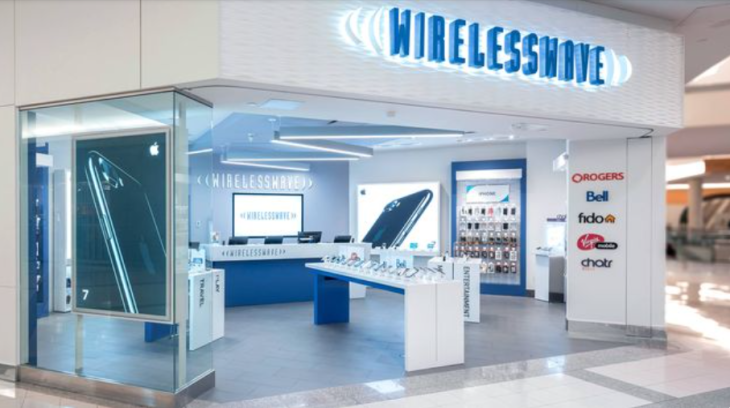
By Ahmad Hathout
Rogers has taken telecom services retailer Glentel to court over its decision to stop carrying the cable giant’s credit card bundle, according to an October 15 complaint in the Ontario Superior Court.
Since the filing of the complaint, the court has ordered Glentel to continue selling Rogers’s Mastercard — offered in a bundle with its wireless or wireline services — until it can make a determination on the merits of the case.
Rogers says in the complaint that it learned over Thanksgiving that Glentel, which is owned equally by Rogers and Bell, would stop carrying the cable giant’s credit card bundle after receiving a complaint from Bell that its carriage would be offside of its distribution agreement.
Rogers claims that Glentel did not oppose the idea when it first proposed a year ago to have the bundle in Glentel locations, which spans over 200 stores and kiosks across the country under brands like WirelessWave and Tbooth Wireless.
“Glentel’s Chief Legal Officer expressed the view that the Bundled Card Offering complied with the terms of the Distribution Agreement,” Rogers alleges in the complaint. “In the months that followed, Glentel never took the position that the Bundled Card Offering was prohibited by the Distribution Agreement,” which was signed in May 2015. A request for comment from Glentel was not returned.
Rogers says its distribution agreement with Glentel stipulates that the cable company “will solely have the right to determine which Services it will offer at [Glentel’s] Locations.”
Everything was going swimmingly, according to the complaint: Rogers said it created and distributed marketing materials to the Glentel stores and developed and administered training for 900 Glentel staff.
“Glentel was well aware of and actively participated in many of these activities through the spring and summer of 2024,” Rogers claims. “Training for Glentel staff began in early September and Glentel rolled out the Bundled Card Offering to all 224 locations on September 17, 2024.”
Then came Thanksgiving weekend, when Bell complained to Glentel about the bundle without including Rogers in the communications, the complaint alleges.
“Rogers was aware that Bell wanted Glentel to stop marketing and promoting the Bundled Card Offering in its stores, but Glentel never discussed with Rogers whether or when it might do so, nor did Glentel ever tell Rogers that it now considered the Bundled Card Offering to be prohibited by the Distribution Agreement,” Rogers alleges.
A Bell spokesperson said the company doesn’t comment on active legal matters. Rogers pointed to its application when asked for comment.
By mid-day on Thanksgiving Monday, “and without prior warning or discussion, Glentel sent an email to Rogers and Bell saying that it would cease the Bundled Card Offering in all of its stores effective the following morning, Tuesday October 15,” the complaint states. “Glentel provided no reason for its sudden reversal, nor for why it was taking this action on such short notice.”
Rogers said it told Glentel that it was in breach of the distribution agreement and said it was contractually obligated to maintain the status quo pending arbitration resolution of the issue, but Glentel allegedly refused to comply. It refused again, Rogers alleges, when the cable company said it would take the issue to court to get an interim injunction against it to maintain the credit card bundle at the stores.
“By providing less than 24 hours’ notice, on a holiday, that it would cease the Bundled Card Offering, and by refusing to maintain the status quo pending resolution of the dispute, Glentel has breached the Distribution Agreement, breached its contractual duty of good faith, and acted in a manner that can only be intended to thwart Rogers’ rights and avoid Glentel’s obligations,” Rogers says in its complaint.
The matter is time-sensitive, as it comes ahead of the most competitive time of the season — the holidays. Before being granted the injunction against Glentel, Rogers said in the complaint that the status quo must be maintained or it will be irreparably harmed because it would miss out on revenue opportunities from the Black Friday, Christmas, and Boxing Week events, during which it said it would be disadvantaged compared to Bell, which has its own Virgin Plus benefits program in the stores.
“It will be impossible for Rogers to adjust its plans and develop new marketing and promotional strategies for the critical November and December selling periods,” Rogers said in its complaint.
Rogers’s subsidiary Rogers Bank launched the latest version of its Mastercard in September 2023. It provides benefits including device financing, free roaming days, cash back, lower monthly payments on new phones and other perks to drive loyalty and retention.
Photo via Wireless Wave’s Facebook page



